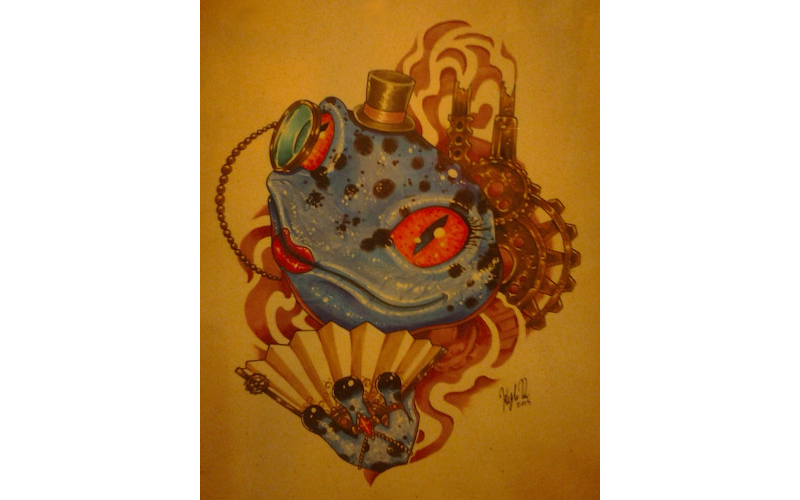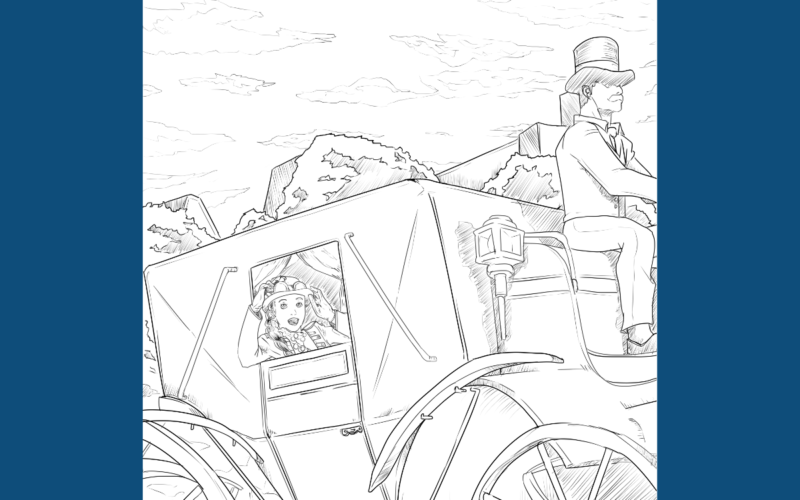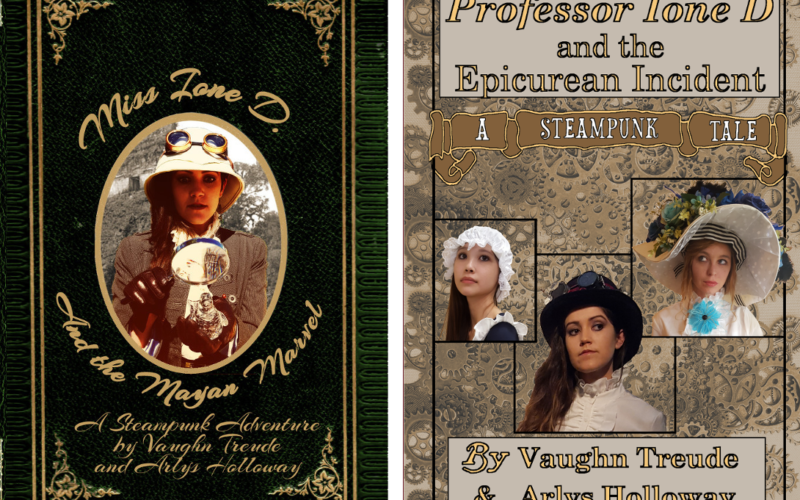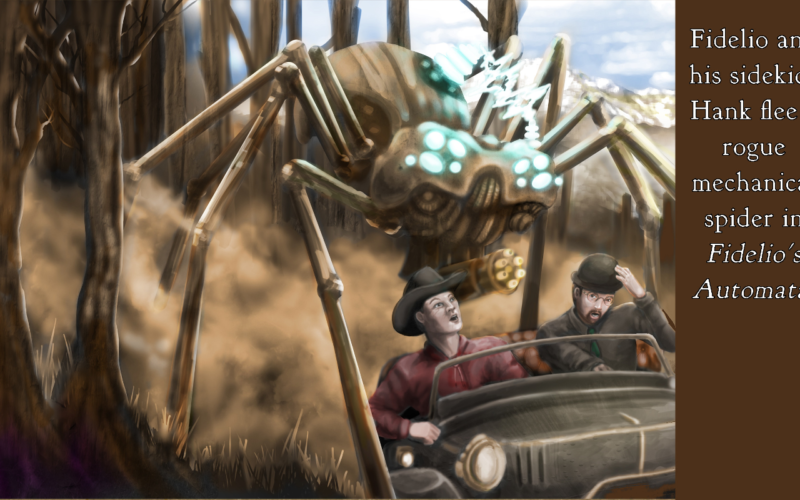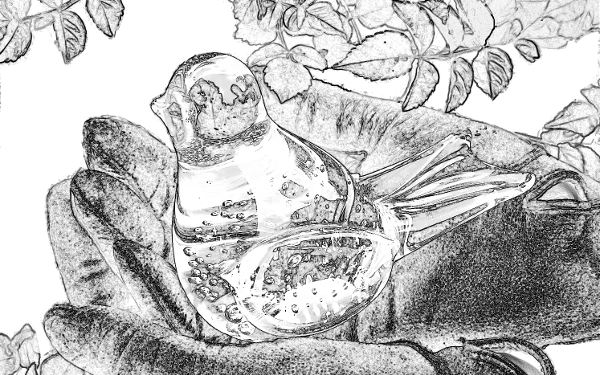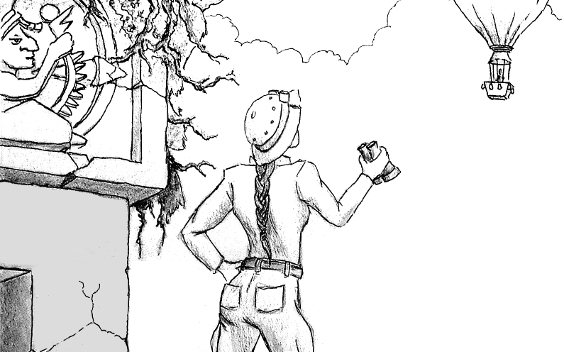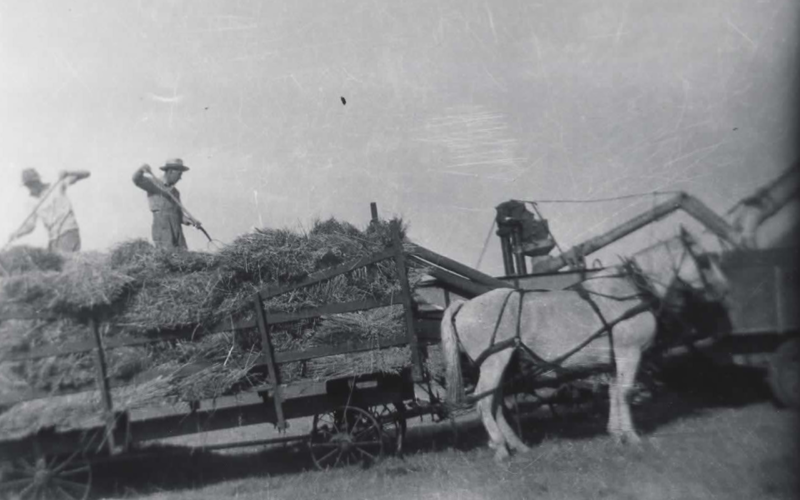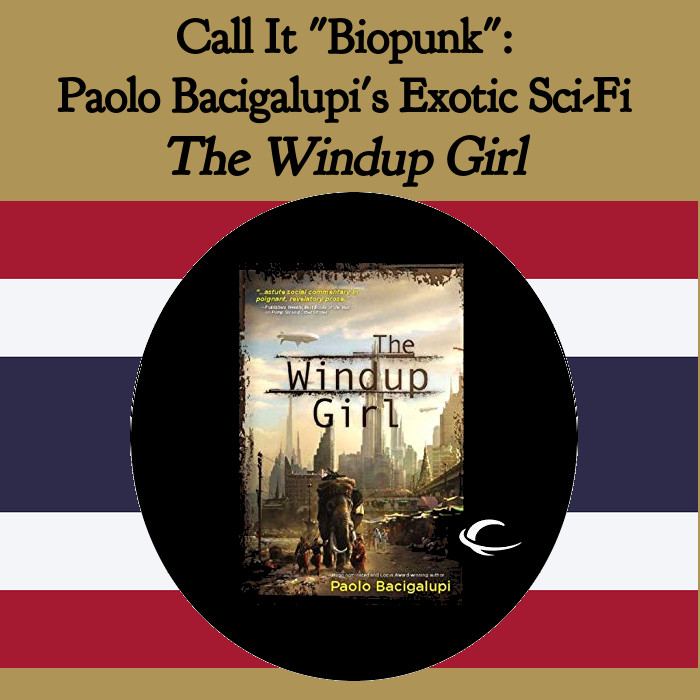
Cover by Raphael LaCoste Copyright Paolo Bacigalupi and/or Night Shade Books
Never trust a “best of steampunk” list (unless it’s one of mine.) The genre is so eclectic and quirky that there are bound to be entries that aren’t steampunk at all. I found Paolo Bacigalupi’s The Windup Girl in “10 Best Steampunk Novels 2019” on bookconsumers.com. The title sounds right and the cover hints at a “future devolution” setting. In reality, it’s far closer to dystopian cyberpunk – not that that’s a bad thing.
The setting is Thailand a hundred years or more after the environmental disasters of the 21st Century. Petroleum is used up and coal is restricted due to climate change and the rising sea level. Though airships are in common use, the tech is mostly pre-Victorian. It’s the age of animal power, sailing ships, clockwork springs, and, ironically genetic engineering. Though the United States is no more, American corporations control the world through their patented GMO seed stock. Only Thailand maintains its independence because the Thais have their own bio-engineering program.
The story follows a variety of characters: Agrigen executive Anderson Lake, Thai policeman and popular hero Jaidee Rojjanasukchai, Chinese refugee Hock Seng, and Emiko, the Windup Girl. She is not mechanical but a bio-engineered human, of a race Japan created to address its labor shortages. They are called “windup” because of their jerky, robot-like movements.
Despite the diverse character list, this is no multicultural Star Trek world. Perennial famines and plagues spawn economic terrorism and fierce ethnic hatreds. Though the Thai Kingdom forbids GMO imports as a threat to its independence, the Westerners lurk at its fringes, betting on a crop failure to loosen its resolve. The companies improve their odds by creating botanical diseases and selling their victims the cure. This why the Thais hate foreign biotechnology. Their laws are so strict that Emiko, stranded in Bangkok by her former patron, risks being executed as an “invasive species.”
The novel is not without its flaws. Bacigalupi’s rich descriptions and internal character monologue slow the pace of the story. That’s frustrating because there are so many amazing things happening here. The American-born author has spent time in East Asia and knows the region well. His book has some of the best world-building since Dune. Like Frank Herbert, his characters are complex and morally ambiguous. The heroes are flawed and the villains have redeeming qualities, though the greedy corporations are a possible exception.
The story behind The Windup Girl is interesting in itself. It is Bacigalupi’s debut novel, and he drew his inspiration from the 2007 bird flu epidemic. Though its publisher was the tiny (and now defunct) Night Shade Books, it won both Hugo and Nebula Awards in 2010. It also spearheaded the new genre of “biopunk.”
Because the book’s slow pacing annoyed me at first, I expected to give it a mediocre rating, Yet the more I read, the more I fell in love with the setting and characters. The audio-book’s narrator Jonathon Davis does a good job, though like many of his colleagues, he overdoes some of the stereotypical accents. Interestingly he does not use them for the Thais, who after all, are the natives here.
Though I have a low opinion of recent Hugo Award choices, The Windup Girl was certainly deserving. Serious sci-fi fans will love it. Casual readers will likely find it too deep. Because slow pacing is one of my pet peeves, I’m forced to deduct something from its score, but only half a gear because all things considered, the book is brilliant. I give it 4.5 out of 5 gears.















